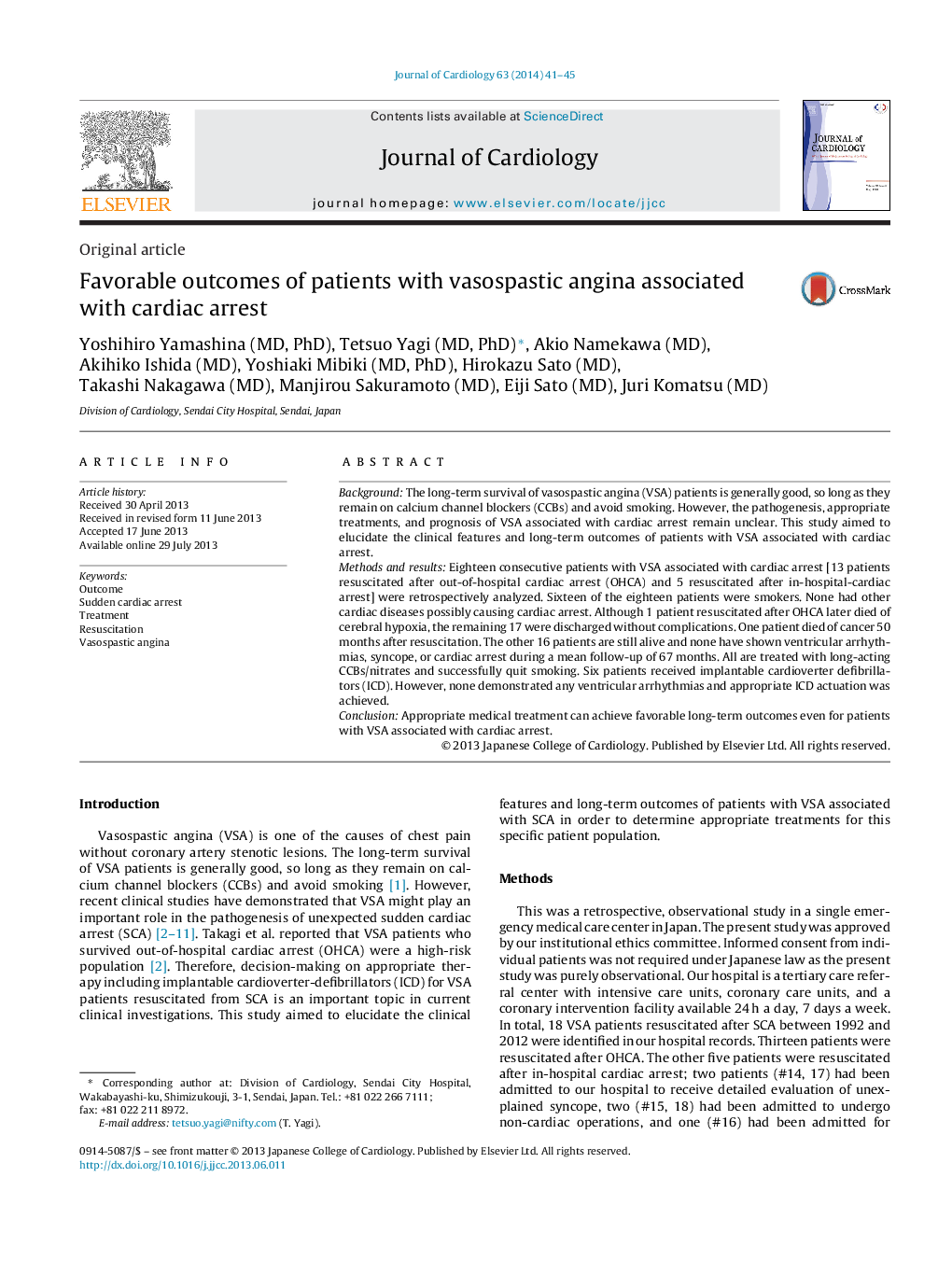| Article ID | Journal | Published Year | Pages | File Type |
|---|---|---|---|---|
| 5984293 | Journal of Cardiology | 2014 | 5 Pages |
BackgroundThe long-term survival of vasospastic angina (VSA) patients is generally good, so long as they remain on calcium channel blockers (CCBs) and avoid smoking. However, the pathogenesis, appropriate treatments, and prognosis of VSA associated with cardiac arrest remain unclear. This study aimed to elucidate the clinical features and long-term outcomes of patients with VSA associated with cardiac arrest.Methods and resultsEighteen consecutive patients with VSA associated with cardiac arrest [13 patients resuscitated after out-of-hospital cardiac arrest (OHCA) and 5 resuscitated after in-hospital-cardiac arrest] were retrospectively analyzed. Sixteen of the eighteen patients were smokers. None had other cardiac diseases possibly causing cardiac arrest. Although 1 patient resuscitated after OHCA later died of cerebral hypoxia, the remaining 17 were discharged without complications. One patient died of cancer 50 months after resuscitation. The other 16 patients are still alive and none have shown ventricular arrhythmias, syncope, or cardiac arrest during a mean follow-up of 67 months. All are treated with long-acting CCBs/nitrates and successfully quit smoking. Six patients received implantable cardioverter defibrillators (ICD). However, none demonstrated any ventricular arrhythmias and appropriate ICD actuation was achieved.ConclusionAppropriate medical treatment can achieve favorable long-term outcomes even for patients with VSA associated with cardiac arrest.
